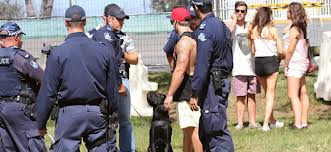Drug Possession
You are here: Home » Drug Charges » Drug Possession
Drug Possession
Drug possession is an offence under Section 10 of the Drugs (Misuse and Trafficking) Act. To be found guilty of drug possession, the prosecution needs to demonstrate that you had an illicit drug in your possession, custody or control at the time of the alleged offence. The drug doesn’t have to be yours. You can be holding it for a friend, or it could have been planted on you or in your car or room without your knowledge. Drug possession is a summary offence, which means it will be dealt with in the local court.
Pleading Not Guilty
To be found guilty of drug possession, the prosecution needs to show that you had an illegal drug in your possession and you were aware, or should have reasonably been aware, that the drug was present. If the drug was not in your possession at the time of the alleged offence, or you were unaware that you had an illegal drug in your possession, you may be found not guilty. If you choose to plead not guilty to a charge of drug possession, the matter will go to a defended hearing, and you will be required to provide evidence to support your plea.
Defences
Your best defence will depend on the circumstances surrounding the charges and whether you have previously been charged with drug possession or any other drug-related offences. To successfully defend yourself against a charge of drug possession, you need to create reasonable doubt that you were in possession of a prohibited drug, or that you were aware of it at the time.
Pleading Guilty
If you agree to the charges made against you, it is often a good idea to plead guilty. Pleading guilty shows that you accept responsibility and allows you to demonstrate your remorse. This can help encourage the magistrate to look favourably on you and help you get a better outcome. If you plead guilty, you may be able to avoid conviction altogether. Drug possession charges are often dealt with under a section 10 dismissal or conditional release order, which is a finding of guilt with no conviction.
Penalties
As drug possession is a summary offence, it comes with a maximum penalty of a $2,200 fine, or two years’ imprisonment. Other penalties you may face include: – A good behaviour bond – A community service order – A suspended sentence – An intensive correction order – Home detention
Why Sydney Drug Lawyers
Drug possession may seem like a minor offence, however it can result in a criminal record, which can impact your ability to work and travel.
However, the team at Sydney Drug Lawyers can help you avoid these serious consequences. Our expert knowledge of drug law, combined with our years of experience fighting possession matters allows us to obtain the best possible outcome in every case. In many possession cases, we’ve been able to obtain ‘non conviction orders,’ which is where you are found guilty of the offence but no conviction is recorded – leaving you free to work and travel as you please.
For any questions about drug possession NSW charges, or if you need legal advice and representation, please contact us today. Our highly experienced drug lawyers can help you get the best possible outcome for your drug possession charges.
Recent Drug Possession Cases
Our client is a 24 year old physical education student.
Police say they observed him entering a ‘known drug premises’ and exiting a short time later with a package.
They followed his car and pulled him over a short time later. They asked whether he had any drugs in the car, to which he replied ‘some steroids’.
They then search his car, located the package on the passenger seat, and within it found a total of 800 Dianabol (steroid) tablets, a 10 ml vial of Sustanox X250 (a steroid) and approximately 1 gram of cannabis.
Our client was then charged with three counts of drug possession in respect of the substances. Given the state of the evidence and our client's admissions, and after some alterations were agreed by the prosecution to the 'full facts', pleas of guilty were entered to the charges.
Our client instructed that he was "obsessed" with his body image. Accordingly, we arranged for him to see a psychologist, who diagnosed him with ‘body dysmorphia’.
He continued seeing the psychologist in the lead-up to the sentencing hearing, and we obtained a report about his underlying issues and the steps he taken towards address them.
We also assisting him to prepare a letter to the court which outlined his acceptance of responsibility, his remorse and his efforts towards rehabilitation. We also helped him in obtaining character references in the proper form.
Despite the quantity of drugs and number of charges, we ultimately persuaded the magistrate to place him on good behaviour bonds for a period of two-years without recording a criminal conviction against his name.
Our previously-anxious client is now confident that his studies will lead to employment as a teacher or instructor.
Our client is a 25 year old man who works in the marketing industry.
Police were conducting patrols outside a popular music festival with the assistance of their drug detection dogs, when a dog indicated the presence of drugs in our client’s possession.
When asked by police as to whether he had any drugs on him, our client immediately made full admissions and produced a small resealable bag containing 7 MDMA (‘ecstacy’) pills.
Under the law, any amount of ‘ecstasy’ above 0.75g is considered to be in a person’s possession for the purpose of supply. Our client was not charged with supply on this occasion, but with drug possession only.
Our client instructed us that he intended to plead guilty to that charge, which was the appropriate plea given his immediate admissions and the finding of drugs.
We assisting him in preparing his letter of apology to the court, in seeing a counsellor and obtaining a letter of attendance from her, and in gathering character references with the relevant content.
We made extensive submissions in court in relation to his acceptance of responsibility, steps towards addressing underlying issues, remorse and the likely impact of a criminal conviction on his future plans.
With some hesitation, Her Honour was ultimately persuaded not to record a conviction against our client’s name, but rather to place him on an 18-month good behaviour bond without a criminal record.
Our client was overjoyed by the outcome and looks forward to continuing to advance in his career.
Our client is a foreign national on a working holiday visa.
A few months into her stay in Australia, she decided to attend a music festival with a group of friends.
On the day of the festival, she was pressured to carry 14 MDMA (‘ecstacy’) tablets into the festival grounds.
The male members of the group, including her boyfriend at the time, felt that as a female she would come under the least suspicion from security and police, who were checking for illegal drugs at the festival entry.
A sniffer dog gave a positive indication and our client quickly admitted to possessing the tablets.
She was then arrested and charged with ‘drug supply’ due to the number of tablets found. In that regard, the law provides that a person found with more than the ‘trafficable quantity’ of drugs can be charged with supply. This is known as ‘deemed supply’. The trafficable quantity of MDMA is just 0.75 grams.
If a person is charged with deemed supply, the onus of proof then shifts to them to prove ‘on the balance of probabilities’ that they were in possession of the drugs for the purpose of something other than supply.
The law also provides that a person who holds drugs momentarily for the owner with a view to returning it is not guilty of supply.
An issue for our client was that there were a number of people to whom the drugs were to be distributed upon entry to the festival, and she made admissions to police that she intended to supply the tablets to these people.
Despite the issues, our defence team wrote a detailed letter – known as ‘representations’ formally requesting withdrawal of the supply charge provided that our client pleaded guilty to drug possession.
She pleaded guilty to that lesser charge and we assisted her in gathering a range of subjective materials, including documents in relation to the impact of a criminal conviction.
After extensive verbal submissions in the local court, and despite submissions against a ‘non conviction’ by the prosecution, Her Honour was persuaded to impose a two-year good behaviour bond without a criminal conviction.
This is an excellent result given the number of tablets involved.
Our client is a 38-year-old teacher.
Police in plain clothes observed him stand up and exit a bar as they were entering the premises with a drug-detection dog.
Police decided to approach him, at which time our client immediately produced a small bag of cocaine and handed it over to them.
Police then arrested and issued him with a court attendance notice.
It wasn’t the first time our client was in trouble for drug possession.
He had two prior drug possession offences, and was placed each time on a ‘section 10’ good behaviour bond, without a criminal conviction.
He had been warned by the magistrate on the previous occasion that such leniency would not be extended to him on a third occasion.
Despite that warning, our lawyers ensured he was placed in the best possible position in court. We assisted him to prepare character references, a letter of apology and evidence he would likely lose the job he recently acquired if convicted.
Our client also made enquiries about participating in a drug rehabilitation program, and we produced evidence of his efforts to the court.
We then made extensive submissions before the court, and with some hesitation the magistrate was ultimately persuaded to deal with our client by placing him on a good behaviour bond without conviction once again.
Our 23 year old client has been granted conditional bail in Central Local Court after being charged with 'supplying a large commercial quantity of prohibited drug' and 'knowingly participate in criminal group'.
Police conducted a controlled operation into the alleged production and supply of methylamphetamine originating out of a clandestine laboratory in Ryde, NSW.
Police used surveillance devices and physical monitoring to track the movement of substances from that location to other parts of Sydney.
Our client was arrested together with four other young men who were allegedly in possession of 2.4 kilograms of methylamphetamine.
It is additionally alleged that our client is captured on surveillance footage handling the packages within which the drugs were found.
All five defendants then came before the Presiding Magistrate in Central Local Court.
They all faced an uphill battle when it came to bail because 'large commercial drug supply' is one of the offences captured by the new "show cause" provisions of the Bail Act - which means that it is very difficult to obtain bail in such cases.
However, our senior lawyers made extensive verbal submissions which ultimately convinced the Magistrate to grant bail to our client.
All of the other four other defendants were refused bail.
It is just another example of how superior legal representation can make all the difference when it comes to your liberty.
Videos on Drug Possession


